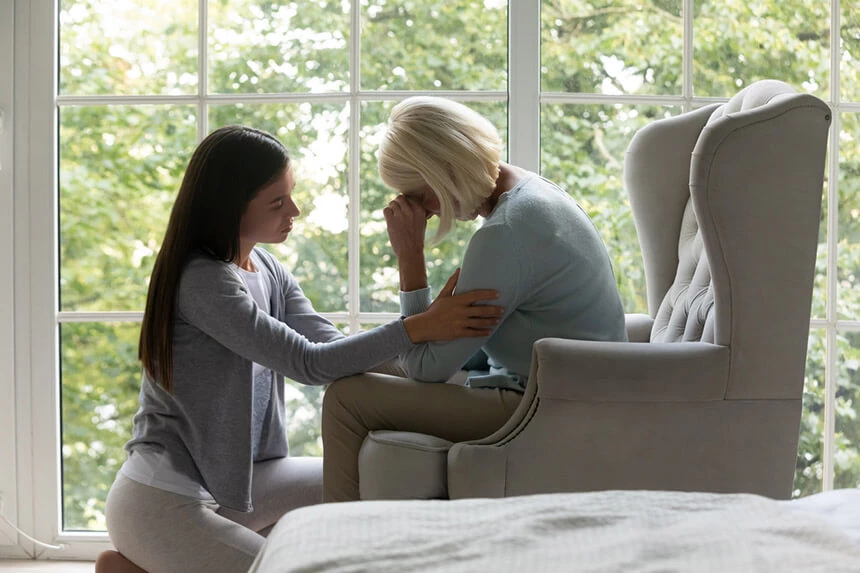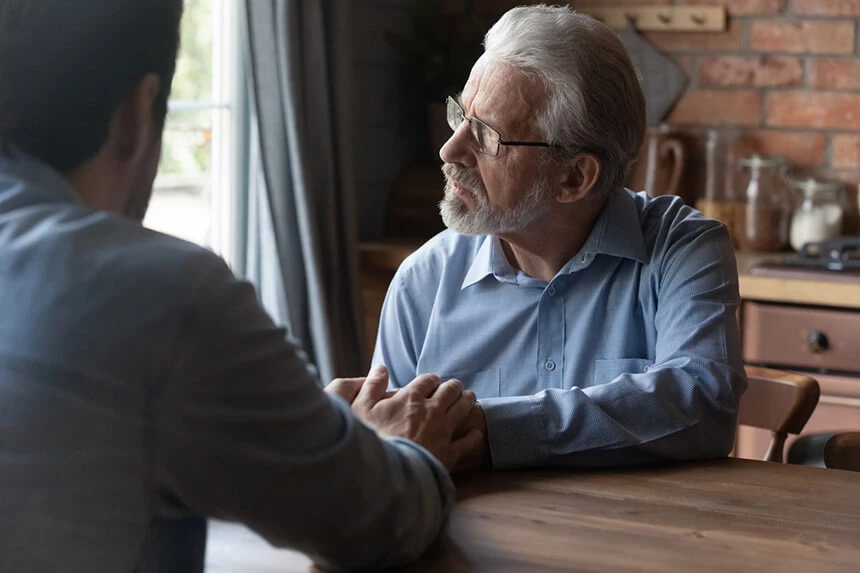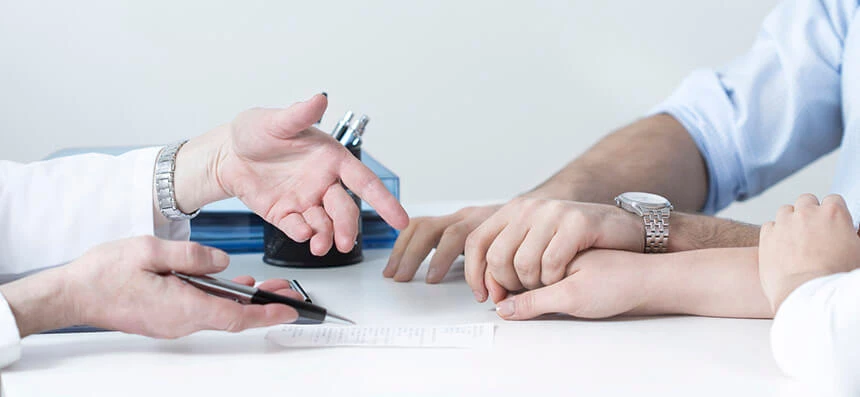PSYCHOLOGIST CONSULTATOION. BUY

How do we feel after a cancer diagnosis?
News of cancer is sometimes treated as a death sentence at first, although early detection of cancer often leads to cure. Then there is a strong emotional reaction, which can be described as a "flood of feelings". It can overwhelm even the strongest and best at dealing with emotions. Fear, sadness, despair, helplessness, confusion, and often a sense of incomprehension appear.
Along with feelings comes the so-called "race of thoughts". They most often concern their own mortality, the need to regulate various life, family, educational or financial matters.
Reaction to news about a serious illness is a very individual matter and depends on many factors: personal (such as, for example, competences related to dealing with a crisis), but also external (such as the way the doctor conveys information about a serious health condition or contact with loved ones, who can show support in this situation).
Life does not end with the diagnosis of some very serious disease, but it really begins. It begins at this very moment, because when we realize that we can die, we begin to fully understand that we are alive
(Elisabeth Kubler-Ross, David Kessler).

Repressing a cancer diagnosis
Most often, however, the reactions of people who have learned that they have cancer are arranged in certain phases, characteristic of the process of adapting to the disease. These are:
- shock and disbelief;
- anger and rebellion;
- depression, despair;
- and ultimately, often acceptance of the disease.
The first phase that occurs most often immediately after hearing the diagnosis is shock and disbelief. Patients do not believe the information about the disease, convince themselves and their loved ones that it is impossible, explain that it is a medical error, and often try to consult many other doctors. "No, it's not true, it's impossible that I have cancer." This is a defense mechanism called denial, the denial of reality that the psyche can't handle at this point.
How to deal with the diagnosis you heard?
Of great importance - from the moment of hearing the diagnosis through the entire process of the disease - is emotional support from loved ones.
It is difficult for a person who has fallen ill to look at this situation from a distance and "coldly", which is why the presence and support of family or friends takes on special importance. Empathy is very important. Sometimes a presence is enough to make a person with cancer not feel lonely.
Relatives often also motivate to fight the disease, and in its later stages they show the meaning of life and suffering. It is important to allow yourself to feel and name emotions and share them, which can be very difficult for many people. The feeling that you can talk to your loved ones and the space they create gives you a lot.
Cancer patients sometimes think that showing affection is a sign of weakness and assume the guise of being strong and doing well. However, open communication strengthens trust and a sense of security in the relationship. It also allows you to clarify misunderstandings on an ongoing basis and prevents conflicts.
After hearing the oncological diagnosis, it is best to concentrate on the tasks arising from this situation, i.e., for example, choosing a hospital or an attending physician. Each person suffering from cancer has the right to choose the place where they will be treated and this is of great importance for their comfort and sense of security.
Where to get information about cancer
There are many concepts regarding the extent to which the doctor should inform the patient about the state of health and how he should do it. One way or another, access to reliable knowledge is crucial and it is better not to look for information about the disease on your own on the Internet, because it may not be reliable and confirmed.
It is worth making sure that you have access to both knowledge about treatment methods and information about various forms of pain relief or improving your mental well-being. It is also advisable to ask questions to doctors and ask relatives to be present during medical visits. They can later help in recreating the information provided by the specialist, which the patient under the influence of emotions may not remember.

How to reduce the stress of a cancer diagnosis
Another important area for people who have contracted cancer is taking care of themselves. Many patients learn to take care of themselves only as a result of the disease.
Healing certainly requires more rest than before. There are many specialized methods of relaxation that are worth introducing into your life to deal with enormous stress.
However, it is best to start with the simplest things, such as:
- contact with nature,
- movement - even in a minimal dose, e.g. yoga or relaxing on an acupressure mat (of course, according to the doctor's recommendations),
- a diet that strengthens the body and reduces stress,
- introducing good sleep hygiene habits.
It is also worth limiting unnecessary duties and introducing longer breaks into your daily schedule.
Breath work (deep breathing, free breathing meditation) plays a huge role in relaxation, as well as body work, such as Schultz's autogenic training or Jacobson's progressive muscle relaxation. Other methods that bring relief and reduce emotional tension are, for example, mindfulness techniques, meditation, music therapy.
Cancer diagnosis and professional activity
An important aspect of the functioning of a person who is struggling with cancer is professional activity. Research shows that work (of course adequate to the willingness, capabilities and strength) positively affects the sense of self-esteem and being needed by other people, which is extremely important for a sick person.
Although the disease is most often associated with a change in the rhythm of the day, activity or company, it is worth maintaining activities that still give pleasure or looking for ways to spend free time that will positively affect the mood.
Related Topics:
- How to get used to cancer? The road to acceptance of cancer
- How to talk to loved ones about your cancer?
- Fear while waiting for an oncological diagnosis - how to deal with it?
To sum up, information about the diagnosis of cancer is associated with great stress and the need for changes on many levels. What's next? It is worth focusing on looking for reliable information and possible solutions (including medical ones), staying in touch with loved ones to gain emotional support, continuing those activities that gave you joy and finding new ones that improve your well-being. Introduce methods to your life that reduce the level of unpleasant emotions, and finally... remember that it is worth seeking support from specialists - a psychologist, psycho-oncologist, and a psychiatrist. Feelings related to the disease are not a sign of weakness, but a natural reaction of the body to information about the threat.
Source:
A. Pietrzyk, Ta choroba w rodzinie. Psycholog o raku, Kraków 2006
D. Kubacka – Jasiecka, W. Łosiak, Zmagając się z chorobą nowotworową, Kraków 1999
E. Kubler – Ross, Rozmowy o śmierci i umieraniu, Warszawa 1979
M. Dorfmuller, H. Dietzfelbinger, Psychoonkologia. Diagnostyka – metody terapeutyczne, Wrocław, 2009
K. Mausch, E. Ryś, Sens życia a zdrowie psychiczne osób chorych onkologicznie. Wybrane zagadnienia w kontekście psychoonkologii i logoedukacji, Gorzów Wielkopolski 2020
K. de Walden – Gałuszko, Psychoonkologia w praktyce klinicznej, Warszawa 2015
Prezentowanych informacji o charakterze medycznym nie należy traktować jako wytycznych postępowania medycznego w stosunku do każdego pacjenta. O postępowaniu medycznym, w tym o zakresie i częstotliwości badań diagnostycznych i/lub procedur terapeutycznych decyduje lekarz indywidualnie, zgodnie ze wskazaniami medycznymi, które ustala po zapoznaniu się ze stanem pacjenta. Lekarz podejmuje decyzję w porozumieniu z pacjentem. W przypadku chęci realizacji badań nieobjętych wskazaniami lekarskimi, pacjent ma możliwość ich odpłatnego wykonania. Należy potwierdzić przy zakupie badania szczegóły do jego przygotowania. |
